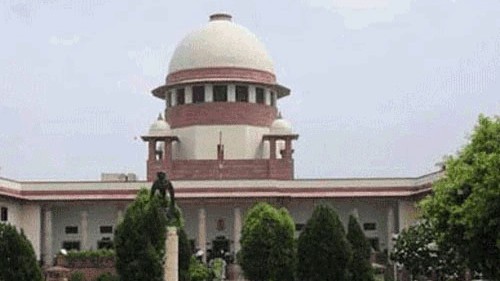
The Supreme Court of India
Credit: PTI File Photo
The strong observations made by the Supreme Court on jail without trial are very relevant at a time when the Enforcement Directorate (ED) is very active all over the country. A division bench of the court criticised the ED’s practice of filing supplementary chargesheets to prevent persons charged under the Prevention of Money Laundering Act (PMLA), 2002, from getting bail. The court made the remarks in the case of Prem Prakash, an associate of former Jharkhand Chief Minister Hemant Soren, who was arrested in 2022 in a money laundering case linked to alleged illegal mining but is still in jail because the investigating agency kept filing supplementary chargesheets. The court said that by filing multiple chargesheets, the ED not only violated the right of the accused to default bail but also prolonged the legal process. The court underlined the need for completing the investigation before arresting an accused, particularly in cases that attract provisions of a stringent law like the PMLA.
The court told the agency that “trial has to begin when you arrest an accused,” and continued incarceration of an accused for 18 months without trial “is bothering us.” The agency has resorted to the practice of supplementary chargesheets to circumvent the law. The right to bail flows from Article 21 of the Constitution, which guarantees right to life and liberty. The stringent preconditions for bail under the PMLA are at odds with this most important fundamental right. The court told the ED that the law did not bar a court from granting bail to an accused if there was prolonged incarceration and delay in trial. It has in the past struck down conditions of bail under Section 45 of the PMLA which said that the court must be satisfied that there are reasonable grounds for believing that the accused is not guilty of the offence and that the accused is not likely to commit any offence while on bail.
The court’s position reaffirms the value of freedom and is in line with many of its past judgements which upheld the fundamental rights of citizens. While stringent laws are needed to curb activities like money laundering, they should not be used to curb the basic freedoms and rights of citizens and harass them. The PMLA is now widely used to harass critics and opponents of the government and not for the purpose for which it was legislated. This is seen from the very low conviction rate of the cases filed under the law. Most ED cases have been directed against Opposition politicians. The Supreme Court’s orders and observations that endorse the rights of citizens are important in such an environment.